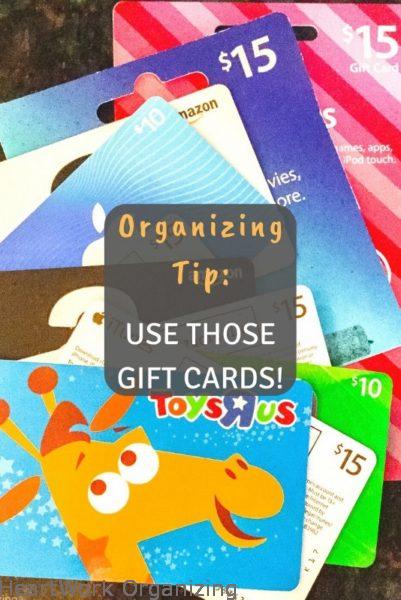“Come ON! You’re going to miss the bus!” you scream up the stairs. Or you answer another barrage of the same questions: Where’s my backpack? Mom, I can’t find my other shoe! Mom, I told you that we were supposed to wear BLUE today, and I don’t have anything clean that is BLUE!
Sound familiar? I mean, we get up, we get dressed, we eat….we do the same thing every morning. So why does it have to be so hard and so stressful? Even if your child is not disabled, it can be a struggle. So add in some executive functioning struggles, anxiety, school refusal or transition issues…whew, we have our hands FULL. And sometimes it feels like life is just moving so fast that we don’t even have time to catch up and get it organized. We all want easier, stress-free mornings. How can we achieve that?
I may not be organized in every area of my life (if you saw my basement you’d report me to Hoarders Anonymous), but our daily routine runs very smoothly. Hey, I have to get Kevin up and ready for school about 220 days out of the year, from ages 3-21. In other words, I have to go through our daily routine almost 4000 times! I’d better be organized, or I am going to be stressed and miserable 4000 times over. No thank you!
Tips for easier daily routines
Allow yourself to be a free thinker: Think outside the box. Think about what you “hear” and what is usually done…and think if that is working for you. For example, most families bathe little kids at night. I was just too exhausted, so I started doing it in the morning. And you know what? It really works for me, so we’ve stuck with it. I also read a lot of articles about how important it is to have family dinners. But many evenings my husband gets home too late, and it was very disruptive to our evening routine. So I feed the kids first and early. I eat with him later, and usually one or both of the boys either has dessert, a snack or does their homework at the table while we eat. It’s the quality family time that counts –and I just have to ignore the mom guilt that may set in if I see another article telling me how important family dinners are. Allow yourself to step away from the “well, we’ve always done it this way” mentality, and think about what tasks you could move around in your daily schedule that just might work better for you. Instead of family dinners, what about family breakfasts? Packing lunches at night, having your child eat breakfast at school…there are many ways you can alter your routine to find a smoother option.
Then become Type A about it: I’m pretty militant about Kevin’s feeding time and the kids' bed times. That might mean that I have to say no to some social events or invitations. I just know “what it looks like” when Kevin doesn’t eat on time and what my kids are like when they don’t get enough sleep. So I am very Type A about the important things. Remember, you are going to go through your daily routines 3000-4000 times (based on 180 school days and 30 ESY days) in your lifetime. I do not want to be stressed and miserable 3000 times when I can work it out.
Make it functional: My house setup is very functional. However, I will never be invited to showcase it in Architectural Digest. And that’s ok. They’re only young once, and it’s not like I have people over for entertaining all the time. I have hanging folders on the side of the fridge. Everyone has a folder so important things like permission slips and homework sheets never get lost. They are in your folder! We have sorting bins for toys, specific bins in the hall closet. Everything in your home needs a home – if it doesn’t have a place to go, it becomes clutter. So give everything its own spot in the house. Car keys, eyeglasses, wallets….these all have a spot in the house so everyone knows where to look for them.
Prioritize and give down time: I can’t do it all. None of us can. When you say yes to something, you are saying no to something else. So for you, for your kids….we have to say no to some things. Many kids with disabilities require quite a bit of down time, and I know that my family is one of those families. I see friends who are go, go, go all the time, never home. I can’t do that. You have to be realistic about what you can do and still remain rested and sane. If you keep your kids out at activities and events until 8 or 9 every night, then they have to come home, eat, do homework, sleep, down time….and you can’t wake them the next day….well, what do you expect? When kids don’t get enough down time, it makes it more stressful for everyone.
Use visual schedules: Your child might need visuals. That link will give you plenty of free options for printable visual schedules. Even a non-disabled child may benefit from visuals or a chart of some kind. Popsicle sticks and two buckets – write a task on each one, and they move it as they are completed.
Use technology: There are all kinds of clocks and timers and apps that you can get for your kids. We simply set our oven timer for different things.
Chunk it down: You’ve asked your kids to pick up toys 4x already….why are they not picked up yet? Well, for one, the task might truly be overwhelming to them. Even if you tell them, “I want you to go pick up 5 toys and put them away,” they may not be able to choose five. They may truly need hand over hand or side-by-side direct instruction on picking up toys.
- You grab a bin- “Ok, let’s pick up all the stuffed animals and put them in this bin.”
- Or “This is the bucket for Legos, so let’s you and I pick up all the Legos together and put in here.”
- Or try setting a timer. “I’m going to set the timer for 3 minutes. For 3 minutes, you and I are just going to pick up every book and put it back on the bookshelf.” Chances are, it won’t even take 3 minutes. But any child will likely agree to pick up toys for just 3 minutes. It sounds like much less work than “Go clean your room!”
- Keep chunking in mind if you choose to do a written or visual schedule of some kind. Instead of “bathroom chores” you might have to really break it down into brushing teeth, combing hair, etc.
See page 2 for more tips to make your daily routines easier
Be aware of your verbal prompts: We all over-do verbal prompts. It’s human nature. But if your child has tuned you out, cannot focus, or cannot handle multi-step instructions, we are truly just wasting our breath.
Use direct language: If your child needs it, use direct language. Not all children get inferences. For example:
- Bad: The TV is really loud. (You’re just stating a fact; you’re not asking the child to do anything.)
- Better: I wish you would turn down the TV. (Again, you really are not directly asking the child to do anything.)
- Best: Please turn down the TV.
Think of all the other phrases that we use around the house that mean something to us, but we are not actually asking the child to do anything. Be aware of your verbal prompts and use direct language. If you look at all the phrases below, you can probably infer what Mom wants. But if your child doesn’t infer, then all you’ve done is state a fact!
- “Wow, your room is really messy.”
- “You kids are so loud today.”
- “We are going to be really late today.”
- “Noisy play is for outside.”
- “I understand that you have a lot of homework tonight.”
- “Your library book is due tomorrow, isn’t it?” (But you haven’t asked them to put it in their backpack!)
Follow your child’s IEP at home: If they cannot handle multi-step instructions, if they need preparation before changing tasks….whatever it is at school that has been identified, the same goes at home.
Choose your battles: My younger son dresses himself. I just cannot fight that battle anymore. He knows which clothes are acceptable for school and I still get final say for picture days, holidays….but he goes to school in outfits he chose. Sometimes he doesn’t match, but we’ve just let that go. Some parents help the child pick out two outfits at night and then in the morning they choose one. Same goes for breakfast items – we have landed on a few choices that are healthy that he can choose from. But he goes to school each day fed and in clean (if not matching) clothes.
Narrate your day: Without verbal overload, of course. I love being a mom, but I certainly don’t love every part of it. There are some chores I would love to hire out…but that’s not going to happen. But I had the revelation the other day that my kids have the perception that I just love everything I do around the house. So I’ve started to explain certain things, that I do these things because it’s part of my mom job, and it’s what I contribute to the household. I also do this for his dad when he’s out doing yard work or scooping poop or washing the car. It really never occurred to him that we do not truly enjoy scooping the yard! It’s just a little thing, but kids need to know that we all do non-preferred tasks at times.
Find a motivator and reward them: There are token economies, pennies, stars, whatever works. Some parenting experts feel that you should focus on intrinsic not extrinsic motivators, but I had to get our days organized first. Perhaps we will wean off the tokens and allowance, but for now, it works for us. (Side note: Giving him an allowance solved another problem for me – he no longer begs for things in stores. He gets an allowance and he can spend it as he chooses. So when he asks for something in a store, if he has the money, he can get it. And if he has no allowance or not enough, he can’t. End of discussion. This has made shopping errands so much more pleasant.)
Wrapping up, you have to know your child, your family dynamic and use your family strengths. Even when I was working out of the house 50 hours a week, I was quite organized and prioritized about our schedules. I had to get up at 4am every day and be out the door with two babies by 6am. We don’t need SuperNanny – we can do this. I realized what I could do during the week and what had to be done on weekends. I used services like grocery delivery, Rx delivery/renewal and dog food delivery to help me stay sane. I let go of bill paying and managing the checkbook and delegated that task to my husband. Our daily lives may not be that exciting, but they are peaceful and harmonious. And that is very valuable to me!
Lisa Lightner is a Chester County, PA mom of two. This post was adapted from the blog A Day in Our Shoes, which she co-authors. It provides support, resources and advocacy services for parents of children with special needs. 






